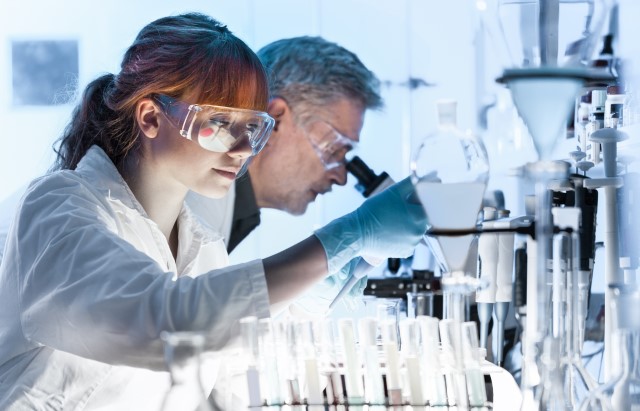

The new Institute of Developmental and Regenerative Medicine (IDRM) at the University of Oxford officially opens today. We donated £10m to make the institute possible. 

The IDRM is the first institute of its kind to bring together developmental biology and regenerative medicine in this way to treat some of the world's most prolific diseases.
The institute will house around 240 world-leading scientists, who will work to develop new drugs and therapies to tackle chronic illnesses associated with cardiovascular, neurological or immune system disorders.
The building has been designed to encourage collaborative working between teams from different fields of research, but with the common theme of increasing our understanding of developmental biology and regenerative medicine.
The building has been designed to encourage collaborative working between teams from different fields of research, but with the common theme of increasing our understanding of developmental biology and regenerative medicine.
Dr Charmaine Griffiths, our Chief Executive, and Professor Sir Nilesh Samani, our Medical Director, will be among the guests at the official opening.
A new powerhouse in regenerative research
Professor Paul Riley, BHF Professor of Regenerative Medicine at the University of Oxford and Director of the IDRM, said:
“The creation of the IDRM is the most exciting project I have been involved in, as we seek to establish world-leading research programmes merging developmental biology with regenerative medicine.
"The IMS-Tetsuya Nakamura Building will ensure we can be much greater than the sum of our parts, enabling multidisciplinary collaborations across our major themes in neurology, cardiology and immunology and nurturing the next generation of scientists.
"With the building now officially open, we are already well underway with the next phase of filling the Institute with the very best researchers and working together to pioneer new treatments for birth defects and acquired diseases.”
"The IMS-Tetsuya Nakamura Building will ensure we can be much greater than the sum of our parts, enabling multidisciplinary collaborations across our major themes in neurology, cardiology and immunology and nurturing the next generation of scientists.
"With the building now officially open, we are already well underway with the next phase of filling the Institute with the very best researchers and working together to pioneer new treatments for birth defects and acquired diseases.”
Professor Sir Nilesh Samani, our Medical Director, said: “We are proud to support the IDRM to become a new powerhouse in regenerative medicine research. Heart failure affects almost a million people in the UK and many millions round the world.
"The potential to repair the heart through regenerative medicine brings real hope to these people and the work of the IDRM will have a profound impact.”
"The potential to repair the heart through regenerative medicine brings real hope to these people and the work of the IDRM will have a profound impact.”


